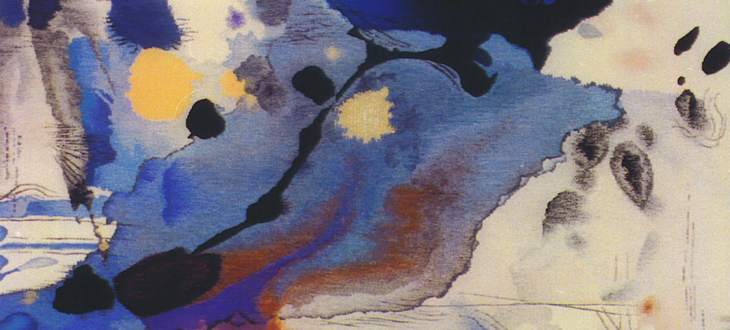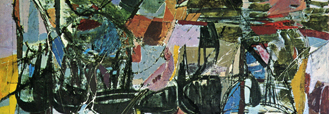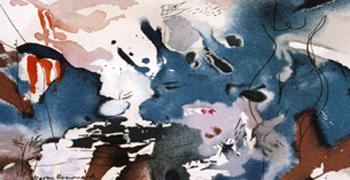His own freedom
Baron Renouard considers nature or external world a main supply of his inspiration and try, by a subjective way, to fix in his paintings all the feelings he had known in contact of the outside world. These feelings, stored in his memory, are chosen deliberately and are purified before showing up as an art work. So, we can say Baron Renouard is the painter, the most representative of this tendency. When he went to Japan, for the first time in 1960, the artist came back home the heart so full of beauty spirit of this country. Since then, through research about how to re-create feelings one has got ; this emotio is shown through his canvas “Homage to Hiroshige”, reflecting in a lovely way his philosophy, his incarnation of Art.
Despite of what we can call his naturalism abstracted and visual, Baron Renouard is not interested at all in reproducing external forms, but he rather tries to find out an inspiration “topic” out of them. Contemporary painting style, all in abstracted language, is without nature visual description, but conveys the artist own poetic feeling thanks to colours, full of complex symbolics and affected shades. He has inside of him, a kind of a strange magic, which makes perceptible the tiniest emotion. All these shapes prove intense and fundamental receptivity of his work and his artistic individuality which is an exceptionally refined essence.
In conclusion, I will quote, to define the art of Baron Renouard, an extract from Hegel : “only when the pictorial art will reach its own liberty that it will get to the top of the true art. It can assume its true role only when it will rise up to spheres where are religion and philosophy and only when it changes, into one of the ways of expression or consciousness figuration of divine interest, essential for human beings, of spiritual truth the most communal. This art, then, looks like philosophy and religion, but is diffrent in one way : art can even express the sublime in a sensual form and make it by the way, in its natural appearance, nearer to our sense and our sensibility.”



